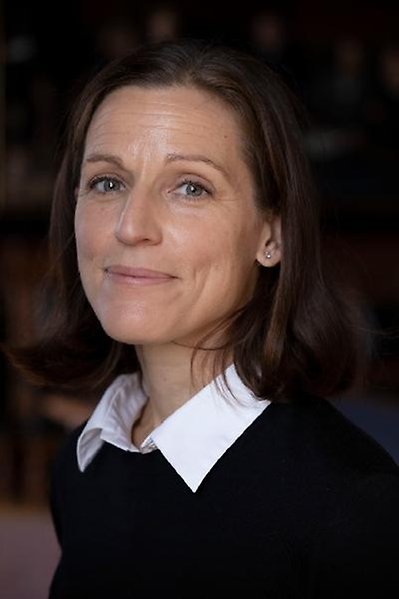Rebecca Thorburn Stern's research focuses on migration law and human rights - especially for children
Rebecca Thorburn Stern is professor in international law. Her research primarily deals with human rights, especially the Human rights of children, Migration Law and the relationship and interaction between International and National Law. She is one of the founders and a member of the steering group of the Gothenburg, Lund and Uppsala Migration Law Network (GL/UMIN).
We asked Rebecca Thorburn Stern why we need to define something as self-evident as human rights.
The idea that people have rights of various kinds has deep historical roots. A view of all humans as rights bearers is an extension of the idea that all people are of equal worth, something that is central to an open democratic society. Although this might make human rights seem like something obvious in many countries, at least in theory, time and time again the idea of rights for various groups and categories – children, women, ethnic minorities and migrants for example – is called into question. It is important to emphasise that it is not simply a matter of theoretical rights: it must be possible to demand rights in practice and be protected by binding legislation. Defining what human rights are is therefore a matter of both identifying the responsibilities of the state to those over whom it has jurisdiction and of ensuring that people know what their rights are so that they can demand them

Rebecca Thorburn Stern. Photo: Mikael Wallerstedt
What is the situation for people living in a country of which they are not a citizen or who may even be stateless?
Human rights apply to everyone, regardless of whether they the citizen of a state or stateless; in other words, without any citizenship. As legal protection is designed – for example, in the Universal Declaration of Human Rights and the European Convention on Human Rights – the state has a responsibility to protect and provide rights to all people under the state’s jurisdiction; i.e., in the geographical area within which the state has authority. With a few exceptions such as political rights, rights are not linked to citizenship. At the same time, the state is the guarantor of individual human rights and so, if you find yourself in a state where you are not a citizen – where your connection to the state is weaker – you may find yourself in a vulnerable position. This becomes particularly clear for groups that the state might prefer not to have within its jurisdiction, such as irregular migrants or poor citizens of another state. The argument may then be that their homeland should take responsibility for them. For the stateless, i.e., those without any citizenship, there is no such state to bear the ultimate responsibility. It is no coincidence that groups that are marginalised and persecuted often have their citizenship of their homeland questioned or even revoked.
Why is it important to discuss human rights in Sweden today?
Because human rights must be constantly anchored, developed, and defended. The idea that all people are of equal worth and equal before the law is a cornerstone of our society. As I said, this does not mean that it is not questioned – something that not least we are seeing in various ways today. Furthermore, it is often said that a society is no better than how it treats its weakest and most vulnerable members, Not least by defending the idea of equal rights and equal worth for all no matter who they are.
Which projects touching on human rights and migration are you currently involved in?
Among other things I am working on two projects that deal with the human rights of children; one on the importance of incorporating the UN Convention on the Rights of the Child into the treatment of refugee children and the other on age discrimination against children, the latter in collaboration with colleagues in Stockholm and Liverpool. Both projects are funded by the Ragnar Söderberg Foundation. I am also working on a number of smaller projects dealing with how the courts are applying changes to migration law and how medical reasons are assessed in an asylum context. We have also recently started an interdisciplinary research network on the theme of migration as a legal and political process with the support of the Centre for Integrated Research on Culture and Society (CIRCUS) at Uppsala University. In terms of education, I am course director for an advanced course on human rights, democracy and migration and I am also involved in the Human Rights Clinic at our faculty.
